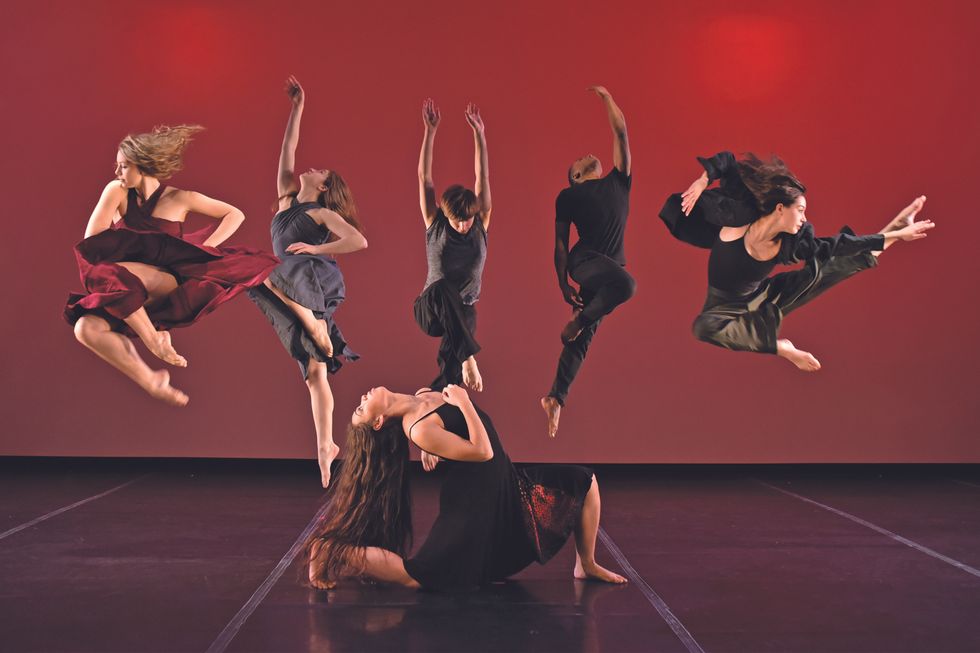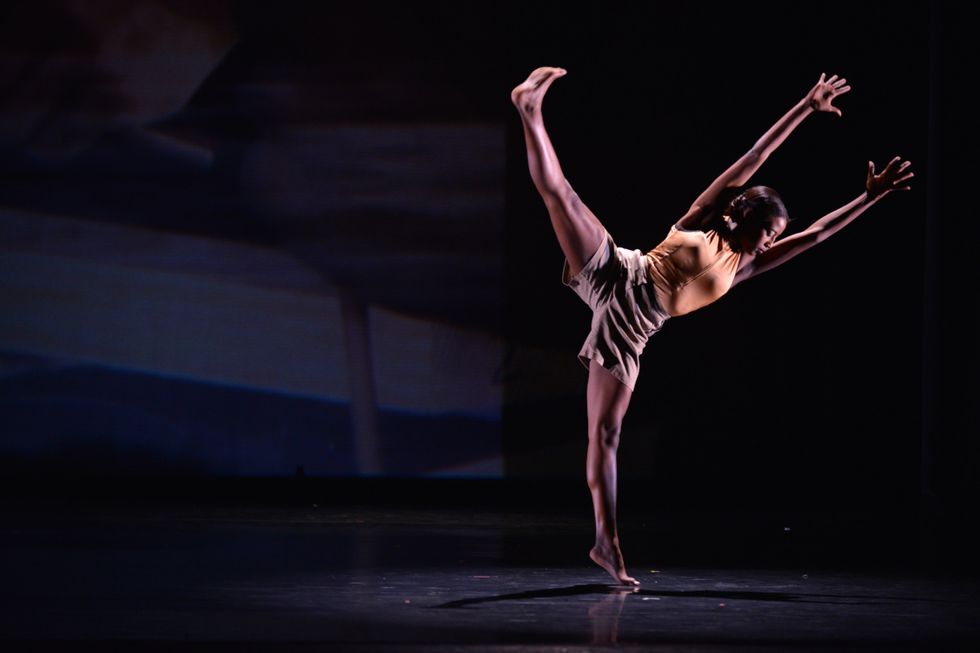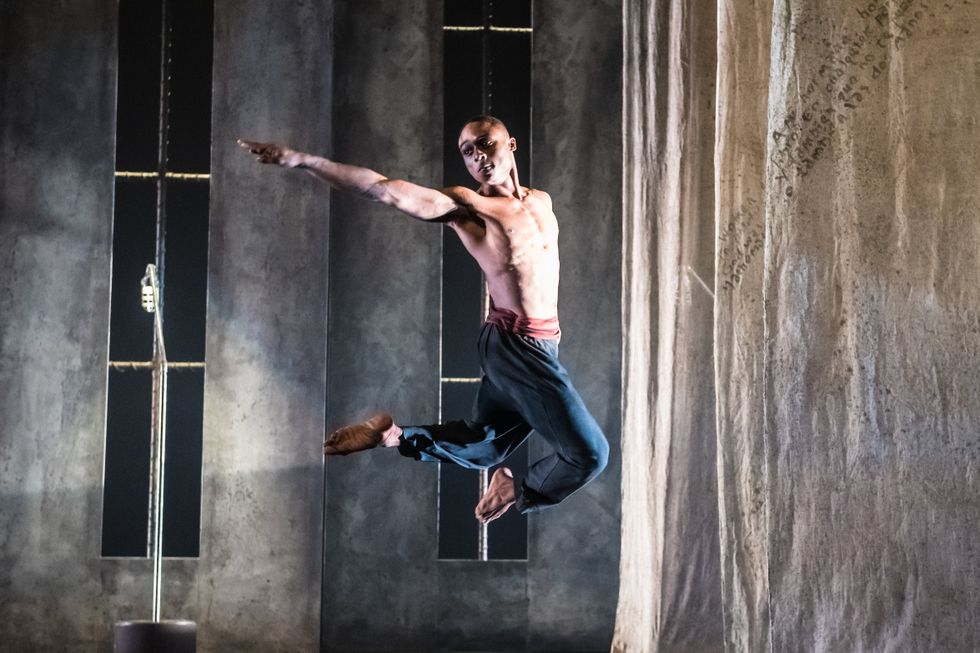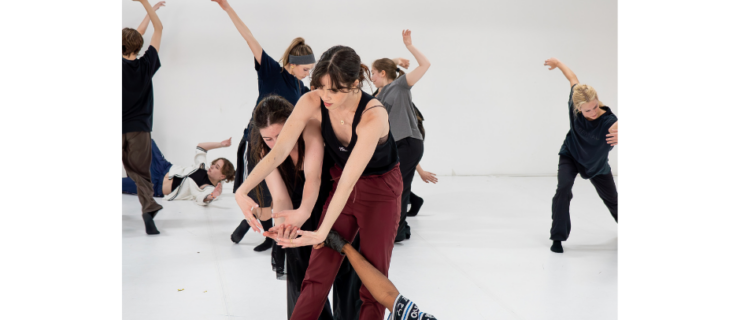Think College Is Too Easy? You're Not Alone—Here's How to Deal
It’s not uncommon for students to arrive at college and find that it isn’t as hard as they thought it would be. Maybe they aren’t placed in the correct level. Maybe it’s an attitude problem. Maybe teachers are reviewing basics before diving into more advanced material. And maybe the program truly isn’t challenging enough.
But how can dancers making the adjustment to college sort through all these possibilities? Open communication with faculty members can be key to figuring out what’s really at work.
Why It Happens
Your Program Is Going Back to Basics
 The first year of college is often about going through foundational material. Here, University of Michigan students. Photo by Peter Smith, courtesy U Michigan
The first year of college is often about going through foundational material. Here, University of Michigan students. Photo by Peter Smith, courtesy U Michigan
One reason some students might not feel challenged when they arrive at college is because many programs use the first year as an opportunity to go through foundational material. “Students wonder why they’re breaking steps down all over again, not realizing that teachers are rebuilding their technique and clearing their bad habits,” says Jessica Fogel, chair of University of Michigan’s dance program. “Dancers feel like they’re losing momentum when really they’re reestablishing themselves on firmer ground.”
You’re Learning a New Style
 Starting from scratch with a new style may feel deceptively easy. Here, Meredith College students, Courtesy Meredith Marketing
Starting from scratch with a new style may feel deceptively easy. Here, Meredith College students, Courtesy Meredith Marketing
The same can be true of learning a new style: “In modern class, when we’re lying on the floor doing leg swings, it can feel easy, like we’re not dancing,” says Carol Finley, director of Meredith College’s dance department. “But that’s missing the deeper point of what’s happening in the hip joint, or at the points of contact with the floor.”
You Aren’t Getting Corrections
 Not getting corrections may make you think you’ve mastered the material. Here, Meredith College students, Courtesy Meredith Marketing
Not getting corrections may make you think you’ve mastered the material. Here, Meredith College students, Courtesy Meredith Marketing
Finley says that sometimes professors don’t give as many corrections at the beginning of the semester, which could lead students to believe that they’re mastering the material, when really they just aren’t getting any feedback yet.
Your Program Is Actually Not Hard Enough
 Melanie Holt says your peers can be an important factor if you’re considering transferring. Photo by John Campbell, courtesy Holt
Melanie Holt says your peers can be an important factor if you’re considering transferring. Photo by John Campbell, courtesy Holt
It may be the case that you need to transfer to a harder program, but be sure to give your school a chance before you do. Wait until you have an opportunity to perform at your school, suggests Finley. She says students often find their place in a program after experiencing the challenge and fulfillment of their first performance. Recent University of Michigan graduate Melanie Holt says that your peers can be a key factor, too: “If the people around you aren’t as driven as you, it’s time to look elsewhere.”
What You Can Do About It
Talk to A Professor
 Talk to a professor about why you’re not feeling challenged. Photo via Stocksnap
Talk to a professor about why you’re not feeling challenged. Photo via Stocksnap
This should be your first step. Your teachers can give you ideas of what you should be working on or how to make your classes harder.
Take Initiative
 Melanie Holt sought out opportunities beyond the classroom to push herself. Photo by Kirk Donaldson, courtesy Holt.
Melanie Holt sought out opportunities beyond the classroom to push herself. Photo by Kirk Donaldson, courtesy Holt.
“I don’t think it’s the job of your dance classes to give you everything you need to be a successful dancer,” says Holt. She sought out additional training in the musical theater department when she wasn’t feeling pushed, and got involved in extracurricular projects like photo shoots.
Tune In to Your Body
 Taking somatics can help make your technique classes more rewarding. Photo via Stocksnap
Taking somatics can help make your technique classes more rewarding. Photo via Stocksnap
Finley suggests taking somatics so that no matter the level of the technique class, you can investigate what’s happening in your body and work on your alignment.
Reach Outside Your Comfort Zone
 Challenge yourself by trying new things. Photo by Peter Smith, courtesy U Michigan
Challenge yourself by trying new things. Photo by Peter Smith, courtesy U Michigan
“Do the things that you’re least comfortable with,” says Fogel. “Try to develop versatility and range.”
Find a Mentor
 U Michigan students can talk through their experiences with their assigned mentor. Photo by Kirk Donaldson, courtesy U Michigan
U Michigan students can talk through their experiences with their assigned mentor. Photo by Kirk Donaldson, courtesy U Michigan
At University of Michigan, every incoming student is paired with a mentor in the class above them. Talking to an older student about your experience can bring helpful perspective.
Make Sure Your Program Will Challenge You In the First Place
Before committing to a school, sit in or participate in a technique class, attend a show, peruse the course catalogue and research faculty and alumni. Do your homework to make sure the program will be hard enough for you.




